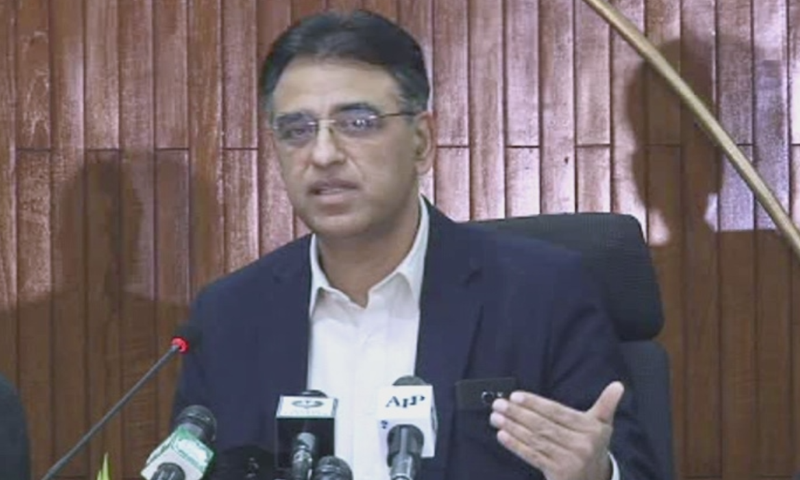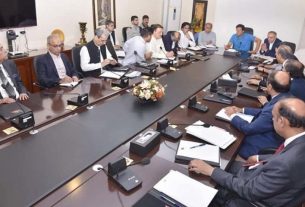A day after presenting his second — and the fiscal year’s third — finance bill, Finance Minister Asad Umar said Pakistan’s economy was facing three fundamental problems, and any policy the government devised should be tested against the standard of whether the country was moving towards the resolutions of these fundamental problems.
He identified these problems as “higher government expenditures, fewer exports than imports, and the more-than-ever need for investment”.
Addressing a post-budget news conference along with Minister of State for Revenue Hammad Azhar and Adviser to PM on Commerce Abdul Razzak Dawood in Islamabad on Thursday, Umar remarked that Pakistan has been struggling with these three fundamental problems for the past three decades.
The minister explained that the “budget deficit due to an imbalance between government expenditures and revenues, increasing trajectory of imports vis-a-vis exports, and an increase in investments” were the three things which the government needs to focus upon to make the economy work in the years ahead.
Umar noted that the economy needed investments at the rate of around 25 to 30 per cent of GDP; however, the existing investment rate was stuck at 15-16 per cent.
“At the current investment rate, it will not be possible for the economy to flourish in the long term,” the minister said.
Keeping these technicalities in mind, the finance ministry had sought recommendations from subcommittees of the Economic Advisory Council on the basis of which policies were formed and presented in the ‘economic reforms package’ announced yesterday
“The implementation process of these policies has been initiated,” the finance minister said.
“This is just the beginning, we have a lot more work to do,” Umar said, promising that the economy will see enduring stability on the completion of the PTI government’s tenure.
He said the finance bill was aimed at attracting investment, assisting agriculture, and promoting the industrial sector.
In response to a question, the finance minister said Pakistan would not compromise on the harsh terms of any international financial institution, be it the International Monetary Fund (IMF) or the International Finance Corporation (IFC) of the World Bank group.
The finance minister added that negotiations with IMF would continue, but only a decision which was in the best interest of Pakistan would be taken.
The finance minister further said the interest rates of loans taken from Saudi Arabia, the United Arab Emirates (UAE) and China were lower than those offered by the IFC.



